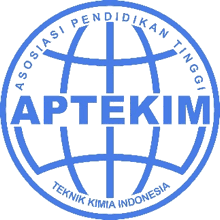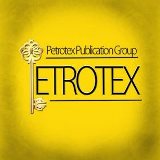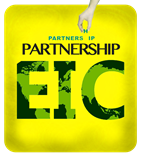Potential of Waste to Energy Processing for Sustainable Tourism in Nusa Penida Island, Bali
Abstract
Solid waste management on Nusa Penida Island is one of the problems in tourism in Bali Province. To deal with this issue, the government has implemented various policies, where the policy that becomes an essential issue is the processing of energy waste. To support this, it is necessary to study the potential of waste characteristics on the island of Nusa Penida. This study aims to analyse the characteristics of waste on the island of Nusa Penida as an energy source based on the generation and composition of waste. Solid waste generation and composition were measured based on land and marine debris data. The total waste generation on land and marine debris can reach 6364.4 kg/day and 762.8 kg/day, respectively. The waste composition materials consist of masks, plastics, metals, and biodegradable organics with a value of 4.12%, 32.77%, 19.54%, and 43.57%, respectively. Therefore, the potential use of organic biodegradable as solid fuel can reach 51,933.8 MJ/day or 14,426 kWh/day. However, in the thermogravimetric analysis (TGA) test, the residue was 18.6%.
Keywords
Full Text:
PDFReferences
Ain, K. Q., Nasri, M. A., Alamsyah, M. N., Pratama, M. D. R., Kurniawan, T. 2021. Collaborative governance in managing plastic waste in Bali. IOP Conference Series: Earth and Environmental Science. 905(1): 012115.
Ankona, E., Multanen, V., Nisnevitch, M., Billig, M., Anker, Y. 2021. Investigation of pyrolysis kinetics and gaseous compounds emitted during charcoal production from woods commonly used in the Eastern Mediterranean. Biofuels, Bioproducts and Biorefining. 15(3): 646–656.
Barnes, A., David, K., Galgani, F., Thompson Richard, C., Barlaz, M. 2009. Accumulation and fragmentation of plastic debris in global environments. Philosophical Transactions of the Royal Society. B3641985–1998.
Bhaskara, G. I., Filimonau, V. 2021. The COVID-19 pandemic and organisational learning for disaster planning and management: A perspective of tourism businesses from a destination prone to consecutive disasters. Journal of Hospitality and Tourism Management. 46: 364–375.
Chaerul, M., Agustina, E., Widyarsana, I. M. W. 2020. Analisis Multikriteria dalam Pemilihan Sistem Pemrosesan Sampah di Kabupaten Klungkung, Provinsi Bali. Jurnal Teknologi Lingkungan. 21(2): 131–137.
Dilkes-Hoffman, L. S., Pratt, S., Lant, P. A., Laycock, B. 2019. 19 - The Role of Biodegradable Plastic in Solving Plastic Solid Waste Accumulation. In S. M. B. T.-P. to E. Al-Salem (Ed.). Plastics Design Library. 469–505. William Andrew Publishing.
Fajar Bali. 2021. DLHP Pastikan 2021 Nusa Penida Miliki TOSS. https://fajarbali.co.id/bali-timur/klungkung/9851-dlhp-pastikan-2021-nusa-penida-miliki-toss. Access on 09-10-2021.
Germanov, E. S., Bejder, L., Chabanne, D. B. H., Dharmadi, D., Hendrawan, I. G., Marshall, A. D., Pierce, S. J., van Keulen, M., Loneragan, N. R. 2019. Contrasting Habitat Use and Population Dynamics of Reef Manta Rays Within the Nusa Penida Marine Protected Area, Indonesia . In Frontiers in Marine Science. 6: 215.
Jambeck, J., Geyer, R., Wilcox, C., Siegler, T. R., Perryman, M., Andrady, A., Narayan, R., Law, K. L. 2015. the Ocean : the Ocean : Marine Pollution. 347(6223): 768-
Jiang, X. J., Liu, W., Wang, E., Zhou, T., Xin, P. 2017. Residual plastic mulch fragments effects on soil physical properties and water flow behavior in the Minqin Oasis, northwestern China. Soil and Tillage Research. 166: 100–107.
Krelling, A. P., Williams, A. T., Turra, A. 2017. Differences in perception and reaction of tourist groups to beach marine debris that can influence a loss of tourism revenue in coastal areas. Marine Policy. 85: 87–99.
Lee, J., Lee, J., Hong, S., Hong, S. H., Shim, W. J., Eo, S. 2017. Characteristics of meso-sized plastic marine debris on 20 beaches in Korea. Marine Pollution Bulletin. 123(1): 92–96.
Legino, S, Hidayawanti, R., Putra, I. S., Pribadi, A. 2019. Reducing coal consumption by people empowerment using local waste processing unit. Journal of Physics: Conference Series. 1217: 12028.
Legino, Supriadi, Hidayawanti, R., Wirantika, I. 2019. Waste as fastest cycle of renewable energy sources through TOSS Model. Journal of Physics: Conference Series. 1282(1):1742.
Lopatina, A., Anugwom, I., Esmaeili, M., Puro, L., Virtanen, T., Mänttäri, M., Kallioinen, M. 2020. Preparation of cellulose-rich membranes from wood: effect of wood pretreatment process on membrane performance. Cellulose. 27(16): 9505–9523.
Nie, F., Li, Y., Tong, K., Wu, B., Zhang, M., Ren, W., Xie, S., Li, X. 2020. Volatile evolution during thermal treatment of oily sludge from a petroleum refinery wastewater treatment Plant: TGA-MS, Py-GC(EGA)/MS and kinetics study. Fuel. 278: 118332.
Olivelli, A., Hardesty, B. D., Wilcox, C. 2020. Coastal margins and backshores represent a major sink for marine debris: insights from a continental-scale analysis. Environmental Research Letters. 15(7): 74037.
Pinto, M., Langer, T. M., Hüffer, T., Hofmann, T., Herndl, G. J. 2019. The composition of bacterial communities associated with plastic biofilms differs between different polymers and stages of biofilm succession. PLOS ONE. 14(6): e0217165.
Roman, L., Schuyler, Q., Wilcox, C., Hardesty, B. D. 2021. Plastic pollution is killing marine megafauna, but how do we prioritize policies to reduce mortality?. Conservation Letters. 14(2): e12781.
Sarwono, A., Septiariva, I. Y., Qonitan, F. D., Zahra, N. L., Sari, N. K., Fauziah, E. N., Ummatin, K. K., Amoa, Q., Faria, N., Wei, L. J., Suryawan, I. W. K. 2021. Municipal Solid Waste Treatment for Energy Recovery Through Thermal Waste-To-Energy in Depok City, Indonesia. Journal of Advanced Research in Fluid Mechanics and Thermal Sciences. 85.
Sejati, M. I. T., Kusuma Admaja, A., Alsita, I., Apriliana Runtu, K. G., Rahmadani, M. 2019. Analisis dan Pemodelan Pencemaran Timbulan Sampah Menggunakan Aplikasi Integrated Waste Management 2 (IWM2) di Kawasan Pesisir Waha Raya, Kabupaten Wakatobi. Jurnal Airaha. 8(01): 024–032.
Septiariva, I. V. A. Y., Suryawan, I. W. K. 2021. Development of water quality index (WQI) and hydrogen sulfide (H2S) for assessment around suwung landfill, Bali Island. Journal of Sustainability Science and Management. 16(4). 137–148.
Septiariva, Sarwono, A., Suryawan, I. W. K., Ramadan, B. S. 2022. Municipal Infectious Waste during COVID-19 Pandemic: Trends, Impacts, and Management. International Journal of Public Health Science. 11(2).
Suryawan, I. W. K., Wijaya, I. M. W., Sari, N. K., Yenis, I. 2021. Potential of Energy Municipal Solid Waste ( MSW ) to Become Refuse Derived Fuel ( RDF ) in Bali Province , Indonesia. Jurnal Bahan Alam Terbarukan. 10(1): 10-15.
Suryawardani, I. G. A. O., Wiranatha, A. S. 2016. Assessment of Guests’ Perception in Implementation of Green Hotel in Supporting Sustainable Tourism. E-Journal of Tourism. 3(1): 21–32.
The Guardian. 2018. Plastic, plastic, plastic’: British diver films sea of rubbish off Bali. https://www.theguardian.com/world/2018/mar/06/plastic-british-diver-films-sea-rubbish-bali-indonesia. Access on 09-10-2021.
Wardana, A. 2019. The Politics of Development in BaliBALIISLAND BT - Contemporary Bali: Contested Space and Governance (A. Wardana (ed.). 27–59. Springer Singapore.
Widyarsana, I. M. W., Agustina, E. 2020. Waste Management Study In The Archipelago Tourism Area (Case Study: Nusa Penida District, Bali Province, Indonesia). E3S Web of Conferences. 148. 05002.
Refbacks
- There are currently no refbacks.




